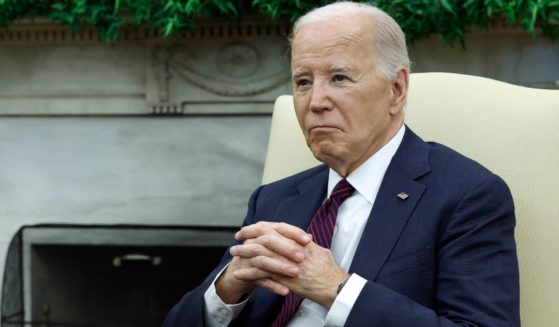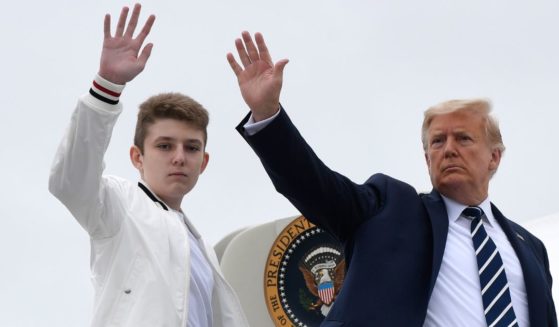EV Owners Left Shocked After China Begins Shutting Down Charging Stations
Electric vehicle owners in China are learning the hard way how a power crisis can have a significant effect on their travel plans.
China is facing two issues leading to a significant energy crisis, Bloomberg reported Tuesday.
First, the Sichuan province is in the midst of the country’s worst drought in 60 years, making it extremely difficult to generate hydropower.
Second, exceptionally high temperatures are causing demand for electricity to skyrocket as citizens attempt to cool down.
Those two things combined are causing a huge problem for the electric vehicle industry.
Two popular automakers in the region, Tesla and Nio, have been forced to dial back power usage, Bloomberg reported.
Nio published notices on its mobile app informing drivers some of its battery-swapping stations in the city of Chengdu were taken offline because of “severe overload on the grid under the persisting high temperatures.”
According to InsideEVs, Nio’s battery-swapping stations are an alternative to traditional charging stations. They allow drivers to quickly swap out the battery in their vehicle for a fully charged one, which eliminates the need to wait for extended periods of time with the vehicle plugged into a charger.
Convenient as that sounds, it obviously takes an extreme amount of power to store these car batteries and keep them charged. With that in mind, it is not surprising such stations would be temporarily closed during a power crisis.
However, it wasn’t just battery-swapping stations that were affected. Tesla announced a significant rollback of available charging stations in Chengdu and the nearby city of Chongqing, Bloomberg reported.
Tesla either completely shut down or restricted services at more than 12 super-charging stations in those two cities. Just two stations were in operation as of Aug. 17, and they were operating only at night when temperatures were cooler.
China’s Teld New Energy, which operates about 300,000 charging pylons in the country, was offering drivers discounts if they charged during the late night or early morning. The plan was an attempt to discourage drivers from charging during peak demand hours, Bloomberg reported.
Nio asked drivers to share their home chargers for at least the next month, and some drivers have been “trading their fully-charged batteries for almost-dead ones at swapping stations to help fellow owners,” the report said.
Electric vehicles’ vulnerability to power shortages is just the latest issue to come to light with these cars.
As has been well-documented, some vehicles have been known to catch fire.
For example, Gonzalo Salazar told Elecktrek his Jaguar I-Pace caught fire on June 16 and burned rapidly. Photos shared on social media showed the aftermath of the blaze.
Another Jaguar I-Pace fire while parked. Now 3 over the last year, which is starting to be significant considering there are only about 50,000 I-Paces on the road
I hope it’s not another Bolt EV situation, but Jaguar also uses LG pouch cells. https://t.co/Vp2VXL9emc
— Fred Lambert (@FredericLambert) August 1, 2022
While electric car fires are rare, they can be extremely difficult to extinguish, according to CNBC. This presents a threat to drivers, passengers and anyone nearby if the car does ignite.
EVs have other shortcomings as well. For example, the Ford F-150 Lightning and other electric pickups were found to be inefficient in towing — something many people expect their truck to be able to do.
While there are benefits to owning an electric vehicle, it is important to realize there are potential risks and drawbacks as well. People should be fully informed before making decisions about what kind of vehicle to buy.
Truth and Accuracy
We are committed to truth and accuracy in all of our journalism. Read our editorial standards.












